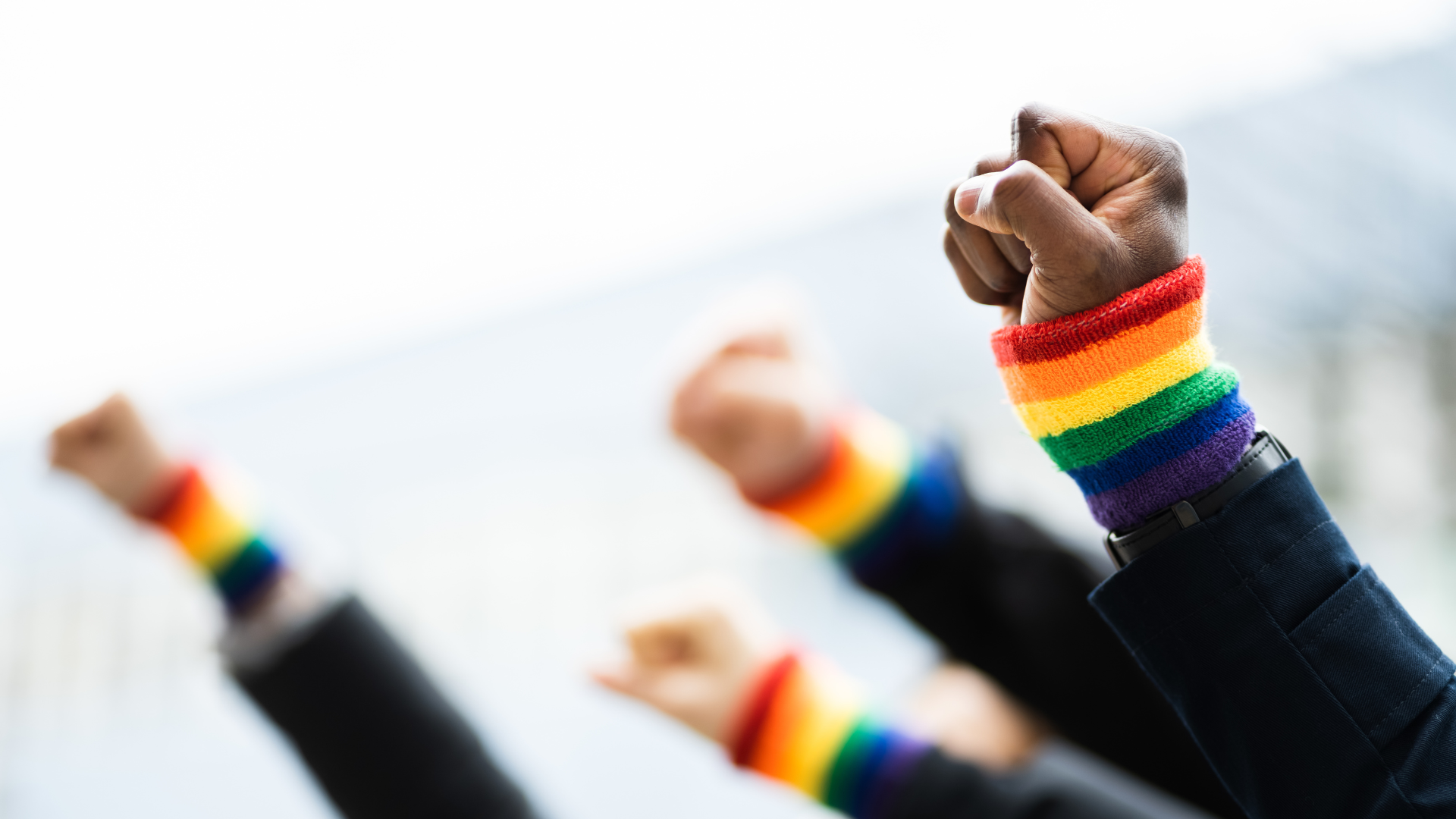Pride started with an uprising. In 1969 New York, drag queens, lesbians, gay men, and other gender non-conforming people fought back police attempting to arrest them for wearing “gender inappropriate” clothing – which was illegal at the time.
For a good portion of my life, I couldn’t imagine what it must have been like to worry about being arrested simply for existing. But in the past few years, I’ve realized that world isn’t very far away. With every new headline about the latest wave of anti-LGBTQ legislation, I hear Black queer poet Audre Lorde’s words: “My silence had not protected me. Your silence will not protect you.”
In Florida, the literal intent of the law is silencing – to stop conversation and education that is anything other than cisg and hetero. In Texas and Missouri, the intent is both silencing and threat – to make parents afraid of caring for their child, to make children afraid of listening to themselves, to make healthcare workers afraid of doing their jobs.
Florida and Texas are grabbing the most headlines, but there are dozens of other states making similar moves right now.
My own city of Fort Collins, Colorado, is not safe from the anti-LGBT+ legislation, rhetoric, and violence sweeping the nation. Our local school district faces unfounded accusations of recruiting kids and youth via queer clubs and education about gender and sexuality. There are campaigns to make support and education less accessible for our kids.
Without counteraction, these efforts to make it scarier and more shameful to be a queer person, especially a queer youth, will work. Even if people don’t literally go back into the closet, they will work hard to pass – to appear as though they conform to traditionally limited ideas of gender and sexuality.
Except Audre Lorde reminds us that the silence of passing does not protect us. The quick relief of being unseen only perpetuates the notion that we have something to hide. Tamping down whatever weirdness we’ve got makes us all think weirdness is bad and that being queer is scary, threatening, and something to legislate, control, and shame.
When weirdness – by which I mean uniqueness, creativity, and eccentricity – is regular – and actually good. Regardless of sexual orientation or gender identity, we all have something that makes us different, freaky, and non-conforming. Thank God. Difference is the universal human truth. Discovering what makes us different and embracing our uniqueness in everyday life makes us truly free.
Behind all these legislative moves and school board fights, there is fear. Fear of what we don’t know or understand – even fear of our own freakiness. For some, the safest way to respond to these fear-based tactics is to get as closeted as possible until another day comes.
But for many others, the safest and freest response to this fear is to go the opposite direction. We need to get more visible. We need to get more gay. More queer. More gender non-conforming. More curious, playful, expansive, and joyful. More seen in our gloriously genuine uniqueness.
I say this as a minister and religious leader of Foothills Unitarian, a Fort Collins church founded in 1898. Our congregation and Unitarian Universalist faith tradition have long been clear: being gay, trans, and queer is good and something to be proud of. It means you are part of a history of powerful people fighting for their worth and dignity to be recognized. It means you are working hard to live your truest, most authentic life.
Even though Pride is over for the year, the need for action is not. Let’s channel our queer ancestors who fought back and said once and for all: we all have the right to be who we are. Free and alive. Queer and beautiful.
Rev. Gretchen Haley, Lead Minister (she/her)
Foothills Unitarian Church
